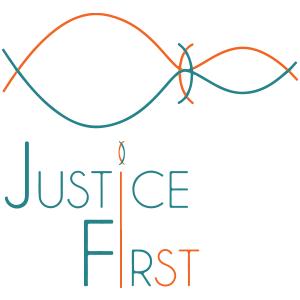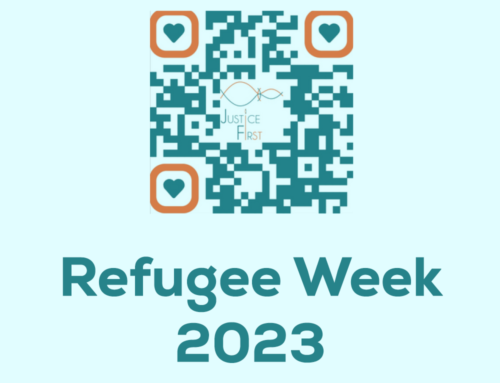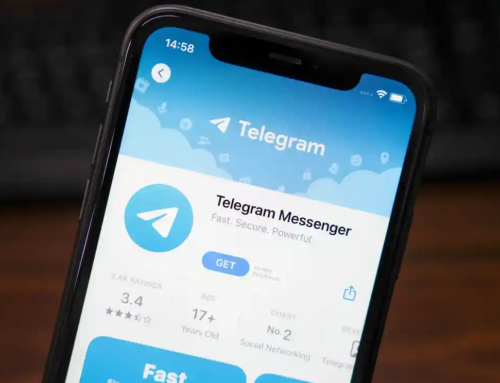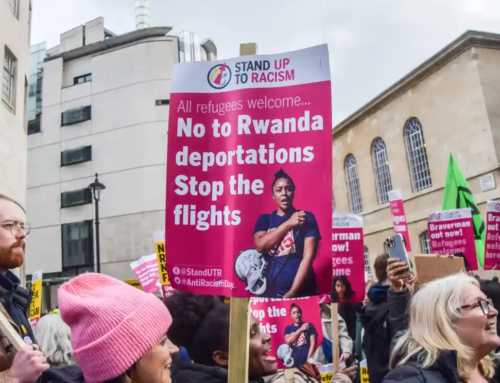Summit to end sexual violence in conflict (by Catherine Ramos).
Fiona Lloyd-Davies, producer of the film “Seeds Of Hope”, had invited me to a screening of the film at the Summit to End Sexual Violence in Conflict. The film is about Masika,, a survivor of rape, who runs a refuge in the East of the Democratic Republic of the Congo for other survivors and their children. I made a last minute decision to go down to the Conference, thinking it might be an opportunity to network with other organisations, as the fringe meetings were open to the public. The speaker at the first meeting I attended was Dr. Mekegwe, the gynaecologist from Panzi hospital in Eastern Congo. Here is a summary of what he said.
I had begun to work as a gynaecologist in 1983. It was in 1999 that I saw the first case in which rape had been used as a weapon of war. I thought it was an isolated barbaric incident but it was the beginning of the crisis. I began to see more cases of women raped in front of their families or in public. Men who tried to defend the women were killed. By raping in public one destroys the beliefs of a community. It has the same effect as weapons. It leads to mass displacement. The man is so humiliated that he cannot defend his wife and children that he feels he is no longer a man and he may run away. The family also leaves. Rape as a weapon of war is a dehumanising act of destruction which denies the humanity of another person, a person who is not seen as a human being. In Syria, also, rape is more serious for communities than chemical weapons.
Last month a dozen Congolese girls, some under 5, suffered the destruction of their genitals. Their potential to give birth has been destroyed and they have been exposed to sexually transmitted diseases which, if not treated, will have long term consequences. Rape as a weapon of war reduces the population and destroys the social fabric and the mental health of the population. Father and, indeed, parents have not played out their role. There is a loss of cohesion in the family, a loss of social cohesion. Children feel they have not been protected. If the rape takes place in a church, people feel it is no longer a church. In the cases of children born as a result of rape, the picture becomes even more complicated. They have no sense of affiliation, of identity. If we have no sense of identity we are weakened, everything can be taken from us. We, must take our destiny into our own hands.
In October 2012 there was a failed attempt on my life. I left Congo, it was a normal reaction. I went into exile. The Congolese women I had left wrote to the President and Ban Ki Moon saying they needed me. They sold pineapples to raise money for my ticket and to secure my protection. They were so brave. I had to go back to continue the struggle. There are times in your life when you know what you must do and when to do it.
There can be no peace without justice. So often justice is sacrificed on the altar of peace. Criminals are being rewarded. If all those who have committed crimes are brought to justice, there will be peace. There are external actors outside of our borders. Crimes are committed outside our borders. Criminals and militia are integrated and given leading position in politics and in the Army. Impunity must be ended and everyone held accountable.
International organisations must support the judiciary in DRC. Tribunals held for both Congolese and foreigners implicated in the war. In Liberia a President was brought to justice.
We have never had the ear of the international community as we have now. There is a global momentum. We must seize the moment. The international community realise that this is not a civil war, it is an act of aggression against Congo. They say that it is an ethnic conflict. There is no problem between Congolese. Fifteen years ago this was not acknowledged. Now is our opportunity, we must seize it. The international community is promoting a dialogue between FDLR and Rwanda. It has a new strategy.
There is a problem of identity. If Congolese youth lack a point of reference, this must be given. They must realise where they are from. We have a country, a future, a potential. Each young person must bring another ten to this awareness. The young use technology so well and must be at the heart of fuelling change, whether they live in DRC or not. They have a huge role to play in the diffusion of this message, the raising of awareness.
In our tradition we expect the Chief to tell us what to do and what we deserve. We do what he wants. He will give us a Fanta, a T-shirt. We must change. If we wait, if we continue in the way of this tradition …..
We have to reverse this and hold the authorities accountable and do what the majority want. The Congolese diaspora want to have an impact.
The international community need to recognise the genocide. The multi-nationals are a part of the sexual violence. More than one million women have been raped. We, Congolese, must take the initiative. Everyone is going in his or her own direction. We need one common strategy.
My message at the Downing Street reception later today will be that, if a red line has been drawn with regard to chemical weapons, a second red line must be drawn with regard to sexual violence.





